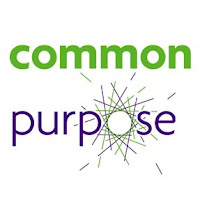Any time you get involved with reviewing or creating a new
organisation, someone inevitably asks (and probably rightly so), “but what’s
our mission statement..?” – without such a focus, it’s very difficult to be
able to get everyone working together, motivated and generally able to be better
at what it is that’s being done.
But trying to define that elusive vision which provides the
magic answer to unifying everyone, resolving disagreements over purpose, and enable
you to easily tell the world what it is you’re about is rarely easy going.
You’ll find that you can easily spend hours (and even days)
in consultations involving words, values, images, and so on, just to get to a
collective agreement about the general focus of it. And then just as much time
again trying to get the exact right words, in the right order (and with the
right punctuation!)...
And all for what? Some inspirational statement that most
people don’t even acknowledge the existence of, because their view of you is
shaped by their experiences of interacting with you – how and what you do with
them (as well as for them), and what they hear about you from other people.
What’s prompted me to embark on this seeming rant against
the sacrosanct mission statement is that I’ve been invited to join a consortia,
and we’ve just spent ½ day trying to agree between the 9 of us what our shared
mission should be about... (and still only got it down to 3 options!). Surely we’d
be better spending our energies agreeing the broad shape of what it is that’s
united us in the first place, and then getting on and doing something to make
the world a better place?
But what about me and my consultancy practice? I’ve often
referred to having certain values that influence my approaches, so surely I
have a mission statement too? Something aspirational, but also a bit vague and ‘woolly’
to make it easier for me to do the wide range of things that I do – so until
the next time I review it, here it is:
“to not get caught...”






